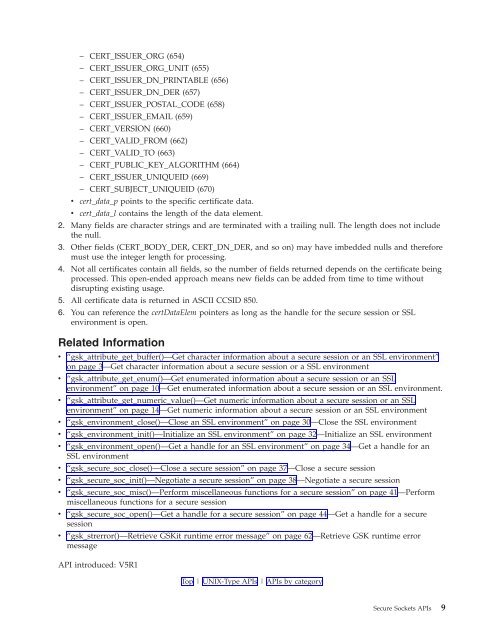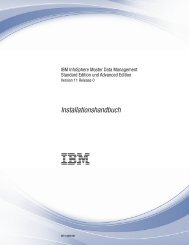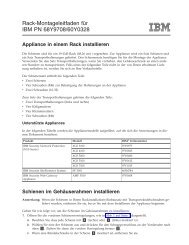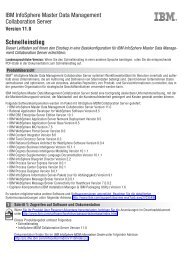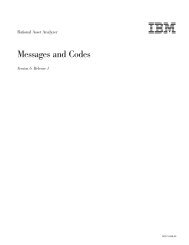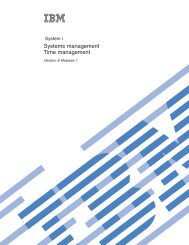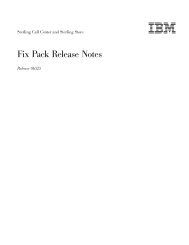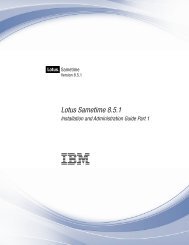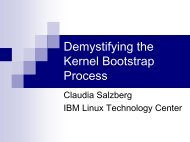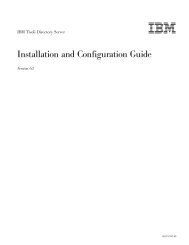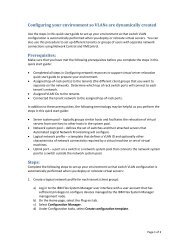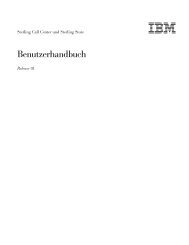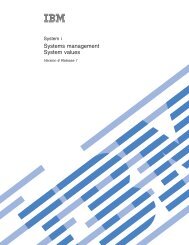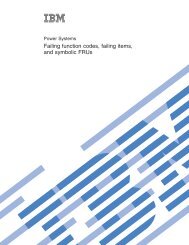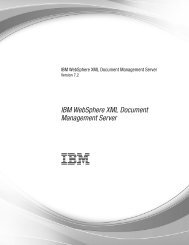System i: Programming Secure Sockets APIs - IBM
System i: Programming Secure Sockets APIs - IBM
System i: Programming Secure Sockets APIs - IBM
You also want an ePaper? Increase the reach of your titles
YUMPU automatically turns print PDFs into web optimized ePapers that Google loves.
– CERT_ISSUER_ORG (654)<br />
– CERT_ISSUER_ORG_UNIT (655)<br />
– CERT_ISSUER_DN_PRINTABLE (656)<br />
– CERT_ISSUER_DN_DER (657)<br />
– CERT_ISSUER_POSTAL_CODE (658)<br />
– CERT_ISSUER_EMAIL (659)<br />
– CERT_VERSION (660)<br />
– CERT_VALID_FROM (662)<br />
– CERT_VALID_TO (663)<br />
– CERT_PUBLIC_KEY_ALGORITHM (664)<br />
– CERT_ISSUER_UNIQUEID (669)<br />
– CERT_SUBJECT_UNIQUEID (670)<br />
v cert_data_p points to the specific certificate data.<br />
v cert_data_l contains the length of the data element.<br />
2. Many fields are character strings and are terminated with a trailing null. The length does not include<br />
the null.<br />
3. Other fields (CERT_BODY_DER, CERT_DN_DER, and so on) may have imbedded nulls and therefore<br />
must use the integer length for processing.<br />
4. Not all certificates contain all fields, so the number of fields returned depends on the certificate being<br />
processed. This open-ended approach means new fields can be added from time to time without<br />
disrupting existing usage.<br />
5. All certificate data is returned in ASCII CCSID 850.<br />
6. You can reference the certDataElem pointers as long as the handle for the secure session or SSL<br />
environment is open.<br />
Related Information<br />
v “gsk_attribute_get_buffer()—Get character information about a secure session or an SSL environment”<br />
on page 3—Get character information about a secure session or a SSL environment<br />
v “gsk_attribute_get_enum()—Get enumerated information about a secure session or an SSL<br />
environment” on page 10—Get enumerated information about a secure session or an SSL environment.<br />
v “gsk_attribute_get_numeric_value()—Get numeric information about a secure session or an SSL<br />
environment” on page 14—Get numeric information about a secure session or an SSL environment<br />
v “gsk_environment_close()—Close an SSL environment” on page 30—Close the SSL environment<br />
v “gsk_environment_init()—Initialize an SSL environment” on page 32—Initialize an SSL environment<br />
v “gsk_environment_open()—Get a handle for an SSL environment” on page 34—Get a handle for an<br />
SSL environment<br />
v “gsk_secure_soc_close()—Close a secure session” on page 37—Close a secure session<br />
v “gsk_secure_soc_init()—Negotiate a secure session” on page 38—Negotiate a secure session<br />
v “gsk_secure_soc_misc()—Perform miscellaneous functions for a secure session” on page 41—Perform<br />
miscellaneous functions for a secure session<br />
v “gsk_secure_soc_open()—Get a handle for a secure session” on page 44—Get a handle for a secure<br />
session<br />
v “gsk_strerror()—Retrieve GSKit runtime error message” on page 62—Retrieve GSK runtime error<br />
message<br />
API introduced: V5R1<br />
Top | UNIX-Type <strong>APIs</strong> | <strong>APIs</strong> by category<br />
<strong>Secure</strong> <strong>Sockets</strong> <strong>APIs</strong> 9


